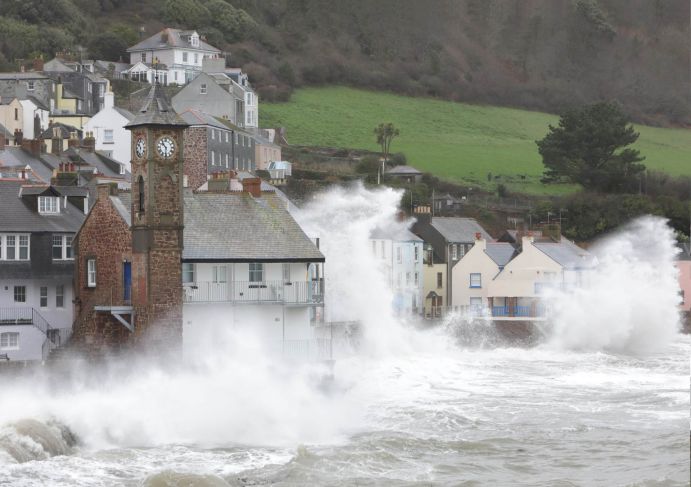Action 4: Researching climate change-induced extreme events in Germany
We want to find out how severely Germany will be affected by extreme weather events in the future and how we can prepare and protect ourselves.
Where do we stand?
Extreme weather events have always been part of natural climate variability. However, these are often only incompletely recorded. These knowledge gaps make it difficult to identify long-term trends and future changes. Nonetheless, it can be assumed that the frequency, extent and intensity of extreme events will continue to increase due to man-made climate change. However, the exact causal relationships between natural climate change, man-made global warming and the occurrence of weather extremes have not yet been sufficiently investigated. This knowledge is needed to estimate the probabilities and ranges of future extreme events and their consequences and to take effective measures for prevention, protection and adaptation.
What are the research needs?
We must investigate how climate change alters the frequency and intensity of extreme events and what impacts it will entail for humans, the environment, the economy and society. In order to be able to make reliable statements on this, we need high-resolution data on the current and future climate. The basis for this is provided by high-resolution spatial modelling and powerful data assimilation procedures, as well as innovative data analysis methods and evaluation tools involving artificial intelligence (AI).
In the field of climate impact research, there is a need for research on how to deal with extreme water-related events, on the functionality and resilience of ecosystems, and on the development of preventive health measures, especially in cities. Here, concepts, methods and tools for damage prevention and minimisation must be provided.
Implementation steps and milestones
- Our research funding will enable us to present initial results as an evaluation base to assess current and future weather extremes in Germany from 2022 onwards.
- We will launch a new high-performance computing initiative in 2021 to develop a new high-resolution global climate model that will significantly improve regional and local prediction quality, especially for extreme events.
- Our funding for research on extreme water-related weather events focuses specifically on the development of innovative monitoring, forecasting and communication concepts. Our support also includes the adaptation of water infrastructures and the development of operational and risk management strategies for dealing with contrasting hydrological extremes. We will see the first concrete results in 2022, for example in the form of assessment tools for climate service facilities and coastal protection authorities.
- By 2023, we will establish six model regions in Germany for adaptation to climate change. We will support them in dealing actively and purposefully with climate change. This includes empowering local actors to implement adaptation measures autonomously and with foresight.
- As part of our support for the German Coastal Engineering Research Council (KFKI) and the research mission ‘Protection and Sustainable Use of Marine Areas’, we are working with the responsible state authorities to develop recommendations for sustainable coastal protection by 2024.
- We will support research into the predictions and consequences of climate-change-induced sea level rise through European initiatives from 2021.
Last updated on





